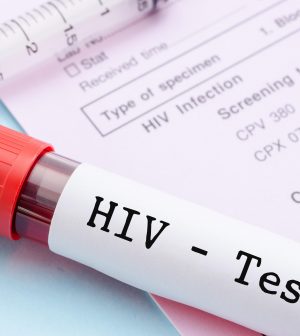- Could Your Grocery Store Meat Be Causing Recurring UTIs?
- Are You Making This Expensive Thermostat Error This Winter?
- Recognizing the Signs of Hypothyroidism
- 10 Strategies to Overcome Insomnia
- Could Artificial Sweeteners Be Aging the Brain Faster?
- Techniques for Soothing Your Nervous System
- Does the Water in Your House Smell Funny? Here’s Why
- Can a Daily Dose of Apple Cider Vinegar Actually Aid Weight Loss?
- 6 Health Beverages That Can Actually Spike Your Blood Sugar
- Treatment Options for Social Anxiety Disorder
High Number of People on HIV-Preventing PrEP Stop Using It

Many people protected by drugs that prevent HIV infection quit using them, upping their vulnerability to the virus that causes AIDS, new research shows.
The drug combo known as pre-exposure prophylaxis (PrEP) is now a mainstay of HIV prevention among gay and bisexual males and other groups at high risk of infection.
However, research from the CUNY Graduate School of Public Health and Health Policy in New York City finds a large percentage of people who start PrEP later stop using it.
The people in the study were “entirely comprised of individuals who met clinical indication for PrEP care but were not on PrEP at the time of enrollment,” noted study lead author Christian Grov. Their progress was tracked for four years.
All were given information about PrEP and how it might protect them, and help (if desired) in beginning the regimen, said Grov, a professor of community health and social sciences at CUNY.
Unfortunately, many at-risk people who were approached about PrEP didn’t initiate it “and more alarming, [there were] high rates of discontinuation among those who started,” Grov said in a CUNY news release.
Overall, between 35% and 40% of people who began PrEP went on to discontinue use over the four years of the study.
Money woes could be driving that trend: “Housing instability” was a key risk factor for quitting PrEP, the researchers reported.
In contrast, folks who had health insurance were more likely to stick with the HIV-preventing regimen.
Sticking with PrEP was crucial: The study found that quitting the meds was linked to rising rates of HIV infection.
All of this means that more must be done to help younger at-risk people maintain housing and health insurance, to ensure they begin and continue with PrEP, the team said.
The study was published March 4 in the journal Health Affairs.
“Let’s focus on bridging these gaps for better HIV prevention,” Grov said.
More information
Find out more about PrEP at the HIV Medicine Association (HIVMA).
SOURCE: CUNY Graduate School of Public Health and Health Policy, news release, March 4, 2024
Source: HealthDay
Copyright © 2026 HealthDay. All rights reserved.










